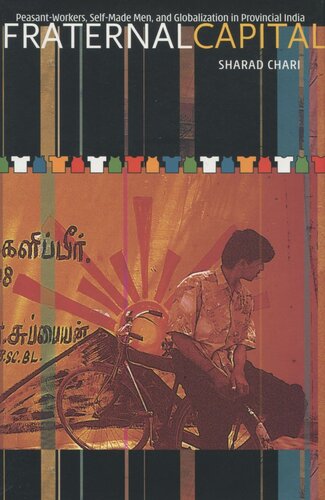

Most ebook files are in PDF format, so you can easily read them using various software such as Foxit Reader or directly on the Google Chrome browser.
Some ebook files are released by publishers in other formats such as .awz, .mobi, .epub, .fb2, etc. You may need to install specific software to read these formats on mobile/PC, such as Calibre.
Please read the tutorial at this link: https://ebookbell.com/faq
We offer FREE conversion to the popular formats you request; however, this may take some time. Therefore, right after payment, please email us, and we will try to provide the service as quickly as possible.
For some exceptional file formats or broken links (if any), please refrain from opening any disputes. Instead, email us first, and we will try to assist within a maximum of 6 hours.
EbookBell Team

4.7
56 reviewsFraternal Capital examines class, gender, and work in Tiruppur, South India, where export of knitted garments has been led by a networked fraternity of owners of working-class and Gounder caste origins, who explain their class mobility as hinging on their "toil." This book asks how these self-made men drew from their agrarian past to turn Gounder toil into capital, and how they continue to make an entire town work for the global economy. Fraternal Capital decenters understandings of global capitalism by linking agrarian transition with the adaptation of a singular past in the interests of accumulation. As Tiruppur shifts to global production, this book tracks ways in which gender links sexed bodies to processes of differentiation, in the tenuous search for consent to increasingly despotic work politics. Tiruppur demonstrates the importance of gender and geography to the globalization of capital as it affects the lives of working people in provincial India and elsewhere. This book links the political economy of development to postcolonial and cultural studies, rooting the analysis of globalization ethnographically and geographically. Fraternal Capital provides a window into a decentralized capitalism and thereby critiques macroeconomic portrayals of globalization by showing how history, geography, gender, and work practice shape local sites of global production. For orders from India, Bangladesh, Nepal, Pakistan and Sri Lanka, please e-mail Permanent Black at [email protected].